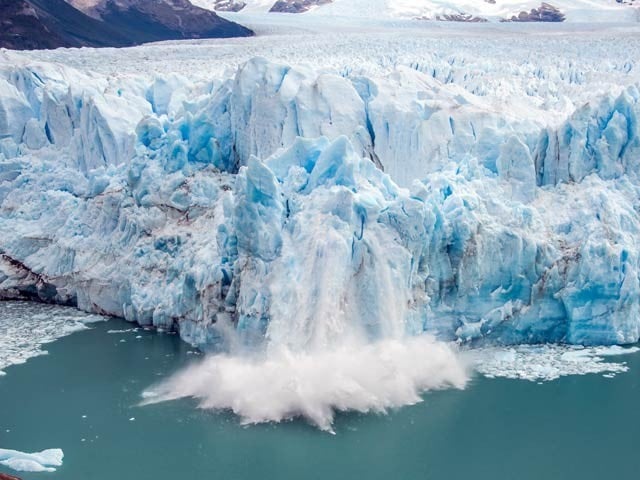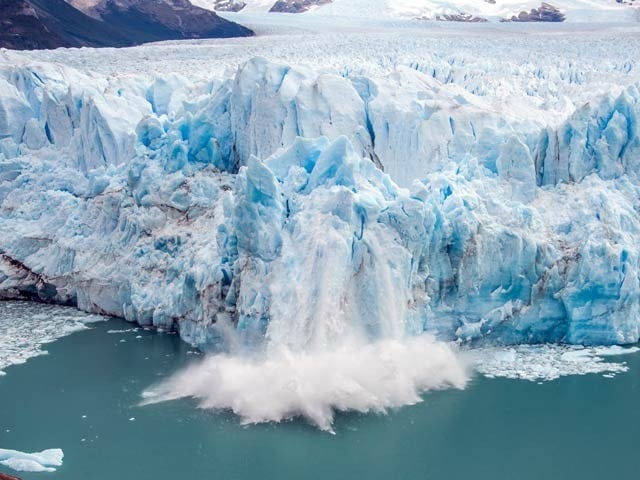
According to a new study, about 5 million people could be affected by the melting of glaciers in Pakistan and India. Photo: File
London: international A scientific survey by a team of experts After it has been said that sooner or later the melting of glaciers around the world may affect about one and a half million people to the extent of danger, out of which one third (5 million) people live in Pakistan and India.
International experts under the supervision of the University of Newcastle have created a map where one and a half million people on the planet could be affected by the melting of the glacier or the glacial lake outburst (GLOF). Half of them live in just four countries.
Average temperatures are rising, and glaciers are melting. A lake is formed by the melting of these water-filled natural mountains and the accumulation of reservoirs in front of them. Then there comes a time when the calculus begins to melt even more. This can cause water to travel up to 120 km and destroy infrastructure including populations, crops and livestock in its path. This can be seen in Pakistan as well.
Glacial lakes have increased worldwide since the 1990s, and researchers have observed more than 1,000 glacial lakes. Then the population living in a radius of 50 km from it is Kodikha. Apart from this, constructions and expansion etc. have also been considered. Populations that are closer to the glacier are at equal risk. Thus, it has been said in the research that people living within 50 km of the dangerous glacier can be more affected by it.
Among these countries, the mountainous regions of Asia are at the top, including areas from Tibet to Kyrgyzstan and China. There are 9.3 million people at risk, while one-third live in Pakistan and India, who are living in the path of the glacier.
The research has been published in the scientific journal Nature, with China, Peru, Pakistan and India leading the way. Scientists have also emphasized planning and other orders in this regard.
(function(d, s, id){
var js, fjs = d.getElementsByTagName(s)[0];
if (d.getElementById(id)) {return;}
js = d.createElement(s); js.id = id;
js.src = “//connect.facebook.net/en_US/sdk.js#xfbml=1&version=v2.3&appId=770767426360150”;
fjs.parentNode.insertBefore(js, fjs);
}(document, ‘script’, ‘facebook-jssdk’));
(function(d, s, id) {
var js, fjs = d.getElementsByTagName(s)[0];
if (d.getElementById(id)) return;
js = d.createElement(s); js.id = id;
js.src = “//connect.facebook.net/en_GB/sdk.js#xfbml=1&version=v2.7”;
fjs.parentNode.insertBefore(js, fjs);
}(document, ‘script’, ‘facebook-jssdk’));



